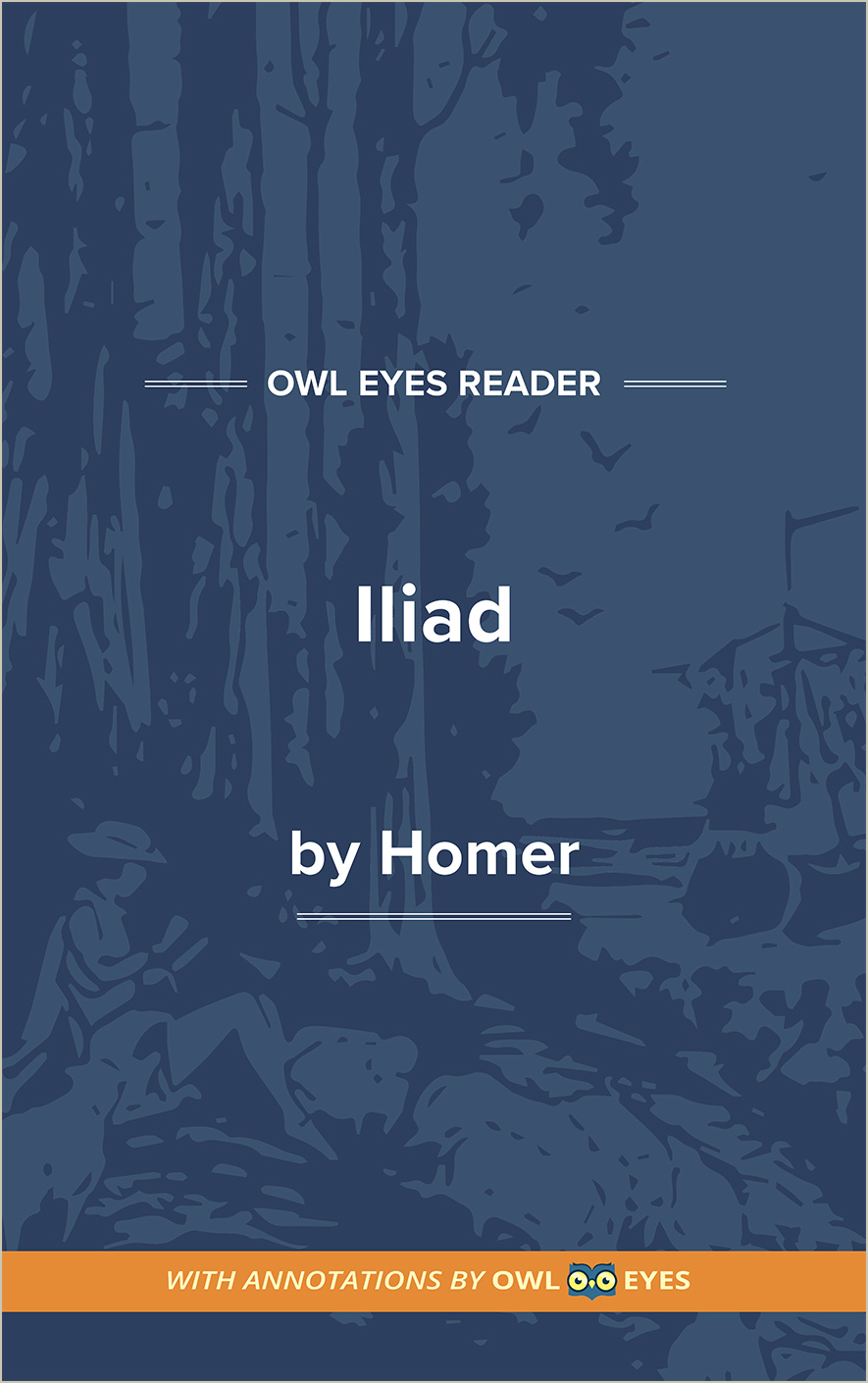Analysis Pages
Plot in Iliad
Plot Examples in Iliad:
Book I
🔒"I shall have trouble if you set me quarrelling with Juno..." See in text (Book I)
"you bore me doomed to live but for a little season..." See in text (Book I)
"the anger of Achilles..." See in text (Book I)
"the counsels of Jove..." See in text (Book I)
"The quarrel..." See in text (Book I)
"Patroclus..." See in text (Book I)
Book II
🔒"Helen..." See in text (Book II)
Book III
🔒"Alexandrus..." See in text (Book III)
Book IV
🔒"Minerva and Juno muttered their discontent as they sat side by side hatching mischief for the Trojans...." See in text (Book IV)
Book VI
🔒"if a man's hour is come, be he brave or be he coward, there is no escape for him when he has once been born..." See in text (Book VI)
Book IX
🔒"Why, pray, must the Argives needs fight the Trojans?..." See in text (Book IX)
Book X
🔒"Take me alive; I will ransom myself;..." See in text (Book X)
Book XII
🔒"the city was sacked in the tenth year,..." See in text (Book XII)
Book XVI
🔒"He knew not what he was asking, nor that he was suing for his own destruction..." See in text (Book XVI)
"the end of Hector also was near..." See in text (Book XVI)
Book XIX
🔒"it is your doom to fall by the hand of a man and of a god..." See in text (Book XIX)
Book XXII
🔒"whom the Trojans name Astyanax..." See in text (Book XXII)
Book XXIII
🔒"I will not give up the mare, and he that will fight me for her, let him come on.”..." See in text (Book XXIII)

